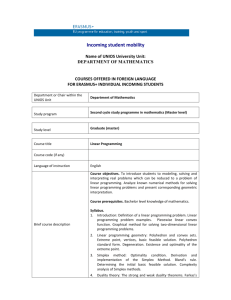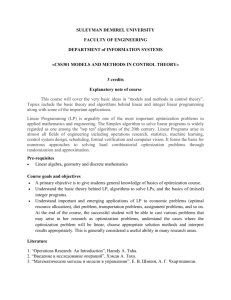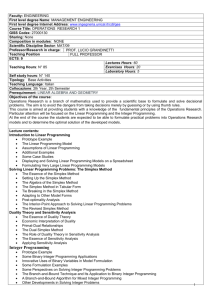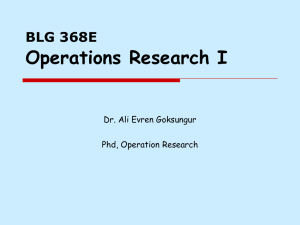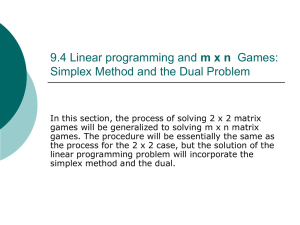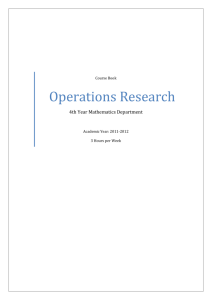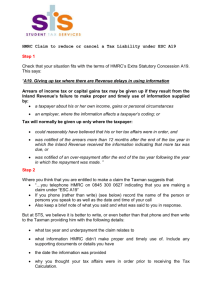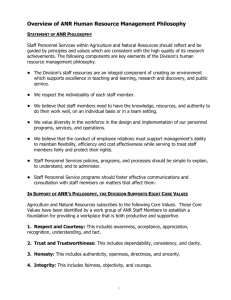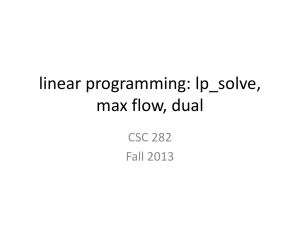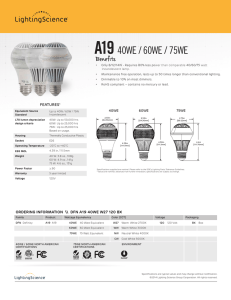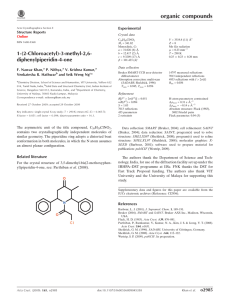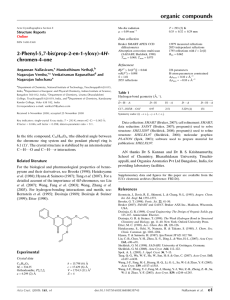Document
advertisement
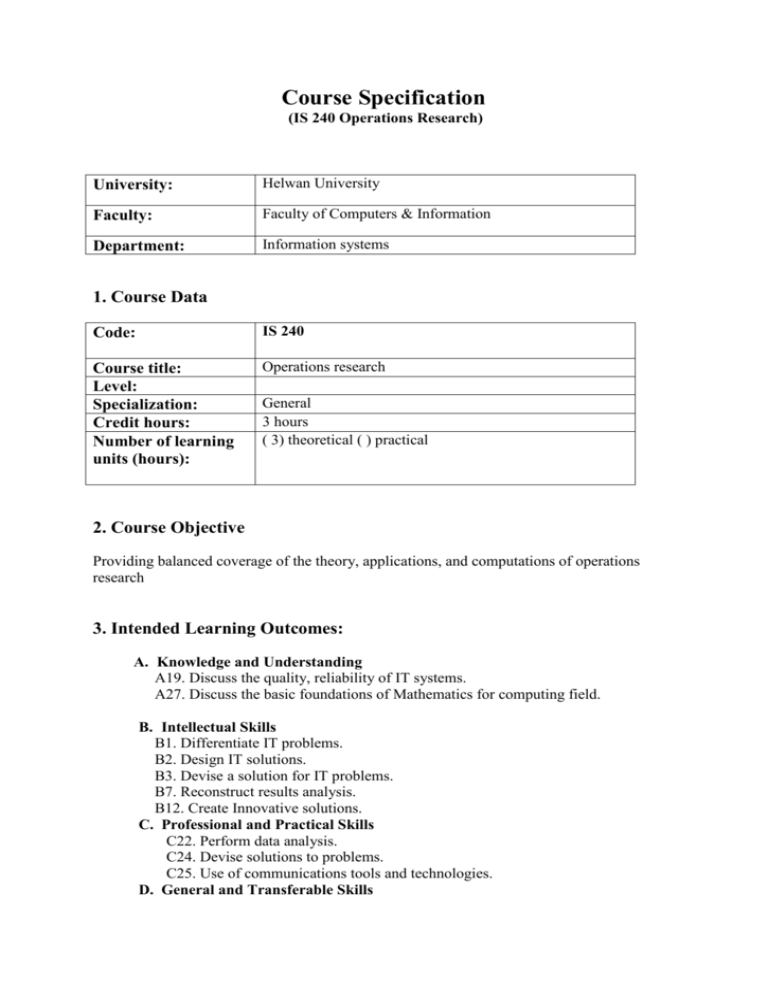
Course Specification (IS 240 Operations Research) University: Helwan University Faculty: Faculty of Computers & Information Department: Information systems 1. Course Data Code: IS 240 Course title: Level: Specialization: Credit hours: Number of learning units (hours): Operations research General 3 hours ( 3) theoretical ( ) practical 2. Course Objective Providing balanced coverage of the theory, applications, and computations of operations research 3. Intended Learning Outcomes: A. Knowledge and Understanding A19. Discuss the quality, reliability of IT systems. A27. Discuss the basic foundations of Mathematics for computing field. B. Intellectual Skills B1. Differentiate IT problems. B2. Design IT solutions. B3. Devise a solution for IT problems. B7. Reconstruct results analysis. B12. Create Innovative solutions. C. Professional and Practical Skills C22. Perform data analysis. C24. Devise solutions to problems. C25. Use of communications tools and technologies. D. General and Transferable Skills D3. Use different Problem Solving techniques. D6. Show Modeling capability. 4. Course contents Topic No. of hours Lecture Tutorial/ Practical 6 2 2 6 2 2 Chapter 3: The Simplex Method . 3.1 LP Model in Equation Form. 3.2 Transition from Graphical to Algebraic Solution. 3.3 The Simplex Method. 9 3 3 Chapter 4: Duality and Post-Optimal Analysis. 4.1 Definition of the Dual Problem. 4.2 Primal-Dual Relationships. 4.3 Additional Simplex Algorithms . 6 2 2 6 2 2 6 3 3 Chapter 1: Introduction to Operations Research. 1.1 Operations Research Models. 1.2 Solving the OR Model. 1.3 Queuing and Simulation Models. 1.4 Art of Modeling. 1.5 More than Just Mathematics. Chapter 2: Modeling with Linear Programming 2.1 Two-Variable LP Model. 2.2 Graphical LP Solution. 2.3 Selected LP Applications. Chapter 5: Transportation Model and its Variants. 5.1 Definition of the Transportation Model. 5.2 Nontraditional Transportation Models. 5.3 The Transportation Algorithm. 5.4 The Assignment Model. Chapter 6: Integer Linear Programming 6.1 Illustrative Applications 6.2 Integer Programming Algorithms 6.3 Traveling Salesperson (TSP) Problem Mapping contents to ILOs Topic Chapter 1: Introduction to Operations Research Chapter 2: Modeling with Linear Programming Intended Learning Outcomes (ILOs) Knowledge and Intellectual Professional understanding Skills and practical skills A19 B1 C22 A27 B2,B3 C24,C25 General and Transferable skills Chapter 3: The Simplex Method Chapter 4: Duality and Post-Optimal Analysis. Chapter 5: Transportation Model and its Variants. Chapter 6: Integer Linear Programming A27,A19 B2 C22 D6 B7 A19 B2,B12 C24 B2 C25 D3,D6 5. Teaching and Learning Methods Lectures Exercises Case Studies 6. Teaching and Learning Methods for students with limited capability Using data show e-learning management tools 7. Students Evaluation a) Used Methods Written Exams to assess Concepts related to Operations research and Papers on case studies shall be submitted by the students during this course. b) Time Assessment 1: Test1 Assessment 2: Test 2 Assessment 3: Midterm exam Assessment 4: final written exam Week 4 Week 7 Week 10 Week 14 c) Grades Distribution Mid-Term Examination Final-term Examination Other types of assessment Total Any formative only assessments List of Books and References 20% 60% 20 % 100% a) Notes Course Notes b) Mandatory Books Required Book: Taha, H. A., Operations Research: An Introduction, 8/E. University of Arkansas. Prentice Hall, 2002. c) Suggested Books d) Other publications Course Coordinator: Prof. Dr. Turky Sultan Chairman of the Department: Prof. Dr. Yehia Helmy
